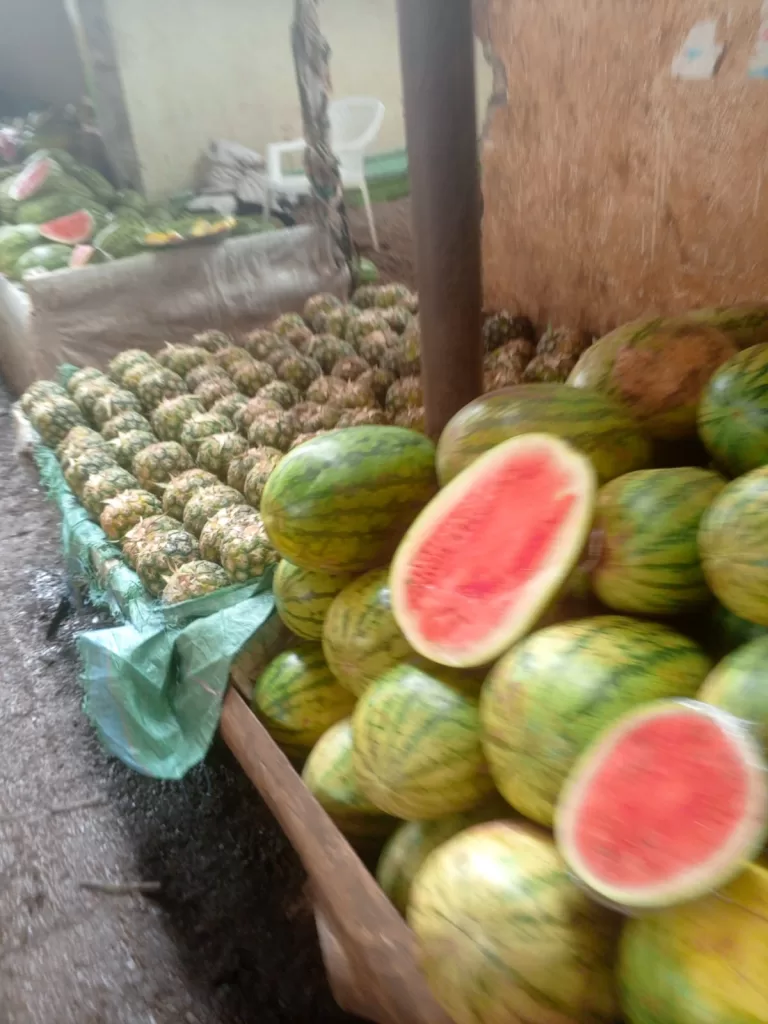
Millions of dedicated smallholder farmers cultivate Kenya’s fertile fields, which are the lifeblood of the nation’s food system. By empowering smallholders in sustainable value chains, we can unlock the true potential of Kenyan agriculture. Furthermore, this approach connects farmers directly with reliable markets, fostering economic growth and promoting environmentally friendly practices. This creates a win-win situation for Kenyan farmers, consumers, and the environment.
Profama bridges this gap. We not only champion the inclusion of smallholder farmers in sustainable value chains but also creating a balanced situation for all stakeholders. We empower farmers, strengthen food security, and promote environmental well-being by fostering sustainable practices and market access.
Challenges of Traditional Value Chains for Smallholder Farmers
Traditional value chains often present several roadblocks for smallholder farmers:
- Limited Bargaining Power: Small, independent farmers typically lack bargaining power with more prominent players in the chain, leading to unfair pricing and exploitative practices.
- Inconsistent Quality: Limited access to resources and knowledge is another challenge that can hinder consistent crop quality, making it difficult for smallholders to meet market demands.
- Lack of Market Access: Reaching lucrative markets is often a challenge, forcing farmers to rely on middlemen who take a significant cut of their profits.
- Unsustainable Practices: Pressure to meet short-term demands can lead to unsustainable practices, such as overusing chemicals, harming the environment, and reducing long-term productivity.
These challenges limit profitability for smallholders and hinder overall food security and environmental sustainability.
Profama’s Approach to Sustainable Value Chain Integration
Profama’s approach focuses on empowering smallholder farmers and integrating them into value chains, prioritizing sustainability. Here’s how we make a difference:
- Farmer Organization and Training: We facilitate the formation of farmer groups, giving producers a collective voice and bargaining power. Additionally, we offer training on sustainable practices, crop quality management, and business skills, equipping farmers for success.
- Direct Market Access: Profama creates direct linkages between smallholder farmers and reliable markets, eliminating exploitative middlemen. This ensures fair prices for farmers and consistent product quality for consumers.
- Contract Farming: We not only establish contract farming arrangements with processors and retailers, but also provide farmers with guaranteed markets and pre-determined prices for their produce. This incentivizes sustainable practices and long-term planning.
- Focus on Sustainability: Profama promotes and supports adopting sustainable agricultural practices throughout the value chain. This includes training farmers on soil health management, water conservation techniques, and organic pest control.
Benefits of Sustainable Value Chains for All
Integrating smallholder farmers into sustainable value chains offers a multitude of benefits for everyone involved:
- Increased Profitability for Farmers: Fair pricing, access to premium markets, and also reduced reliance on middlemen lead to higher incomes and improved livelihoods for smallholder farmers.
- Improved Food Security: By promoting sustainable practices and increasing farmer productivity, these value chains contribute to a more stable and secure food supply for local communities.
- Enhanced Environmental Sustainability: Focus on sustainable practices like soil conservation and reduced chemical use, which protect the environment and ensure long-term agricultural viability.
- Transparent and Efficient Supply Chains: Direct connections between farmers and consumers create a more transparent and efficient food system, benefiting producers and consumers.
Examples of Profama’s Impact:
- Case Study 1: Profama partnered with a leading coffee roaster to establish a contract farming program with smallholder coffee producers. The program also provided training on sustainable coffee cultivation practices, ensured fair pricing, and guaranteed market access. This increased coffee quality, improved farmer incomes, and a more sustainable coffee supply chain.
- Case Study 2: Profama collaborated with a local supermarket chain to source vegetables directly from organized groups of smallholder farmers. We provided training on Good Agricultural Practices (GAP) and facilitated quality control measures. This initiative ensured a consistent supply of fresh, high-quality produce for the supermarket while offering farmers a reliable market and increased income opportunities.
Join Us in Building a Sustainable Future
Profama actively seeks partners and individuals who share our vision of a sustainable and inclusive agricultural future. Here are ways you can contribute:
- Become a Partner: Organizations committed to sustainable food systems can collaborate with Profama to expand their reach and impact.
- Volunteer your Expertise: Share your knowledge by volunteering to train farmers on sustainable practices or connect them with potential markets.
- Spread Awareness: Help raise awareness about the importance of integrating smallholder farmers into sustainable value chains.
By working together, we can create a future where smallholder farmers thrive, food security is strengthened, and the environment is protected for generations. Contact Profama today to learn more about our initiatives and join us in building a more sustainable food system for Africa.

